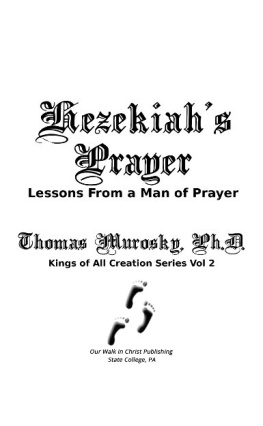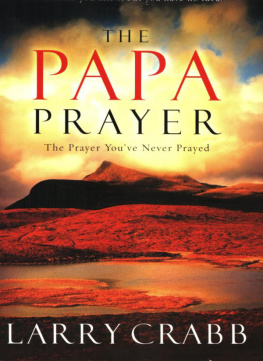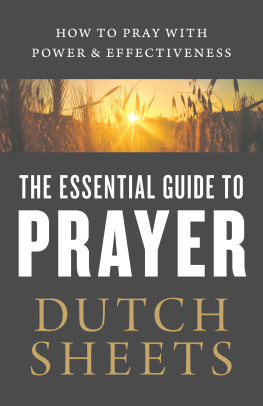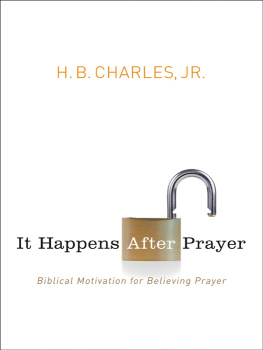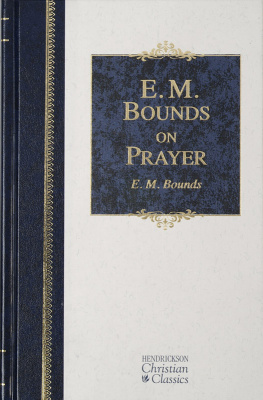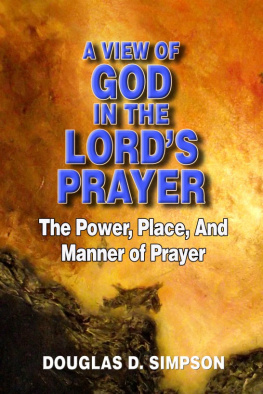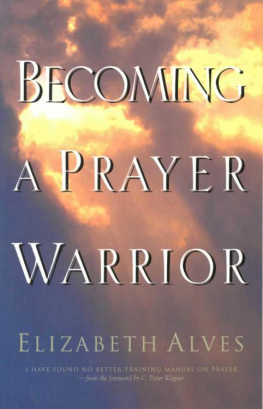Thomas Murosky has a background in Biological Sciences earning his Bachelors in Biochemistry and his Doctorate in Molecular Toxicology. He taught Chemistry at Bucknell University and Western Wyoming Community College. While as a student and professor, Tom worked in several capacities as a childrens and youth worker having served the local CEF board, as a counselor for Christian camps, Awana programs, and other youth outreach including a decade of work in Big Brothers, Big Sisters of America.
Tom stepped aside from teaching and academics to work as a technology consultant to focus more time on writing, blogging, and video production in the area of Christian teaching with an emphasis on discipleship and sanctification. His first book, Testing and Temptations, is about how we are called to transform our lives to be like Christ in the process of Sanctification. His second book, The Art of Shallow Neighboring is parody book calling us to better Christian discernment in the books we read. His third book, I AM Not Amused calls for sober analysis of the media entertainment industry. In addition to these, Tom produces videos on current Christian events and sound theology on OurWalkinChrist on YouTube.
You can find more information and other books Thomas has authored at www.ourwalkinchrist.com. Signup for the newsletter for information on future releases, promotions, and advance reader copies at www.ourwalkinchrist.com/newsletter.
We have all sinned. In our natural condition, we perform actions displeasing to God. These actions are called sin, and since God cannot be in the presence of sin, we are, by our nature, separated from Him. If we die in this state, we are bound to eternal separation in hell. However, God provided a way out of our deathly state. Jesus Christ, who was fully God and fully man, lived on the earth, was tempted in all ways as we are, and lived a perfect life. Jesus willingly went to a cross and died for our sins so we would be able to be in the presence of God. This sacrifice by Jesus is a free gift that makes us clean before Him.
We take hold of this gift by prayer. We must understand and admit our sinful state, incapable of being able to resist sin. We must acknowledge Jesus has the power to cover our sin. Pray to God to receive Christs sacrifice on your behalf and you will be cleansed of your sin, both great and small.
If you have prayed to receive Jesus, mind the words in this book. Begin to read the Bible, search out Christian fellowship, and learn what God would teach you. Grow in faith and sanctification, cleanse your heart and submit to Gods Word. Welcome to the kingdom.
Bibliography
If you ask any Christian, they will probably say they want to improve their prayer life. I know I do! I pray this book gives you some insight into one story of prayer that can help us to understand a little more how God works in prayer. With that in mind, we want to end with a brief section highlighting how we can work on having a more robust prayer life.
Be Committed in Your Faith
Commit to God. We cannot expect God to answer our prayers when we do not have a relationship with Him. As we become closer to God through a desire to love Him for who He is, rather than what He can do for us, we will experience more fellowship with Him, we learn more of His will, and we learn how we can please Him in our prayers.
- Have a desire to please God for who He is
- Learn what the Bible says and what it means
- Conform your life to the teachings in the Bible
The Discipline of Prayer
Develop a habit of prayer. Our spiritual health is compensatory to our participation in the means of grace. That is to say, if we dedicate time to prayer and Bible study we grow closer to God, but if we choose instead to dwell on worldly things, we stay worldly.
- Schedule time to pray
- Pray even when you do not feel like it
- Focus more on God than the things in the world
Find a Place to Pray
Developing a habit of prayer requires finding a place to pray regularly. That is not to say we cannot pray in other places as well, but our primary prayer closet should be quiet and free from distractions. It should be a place where we can go and not be disturbed by a phone, a door, or any techno-gadgets. It should also be private and accessible.
- Find a private place to pray
- Turn off the phone or leave it elsewhere
- Avoid distractions
Keep a Record of Prayer
Have a prayer journal. This could be something large that stays in the prayer location (if your location is at home), or it could be a small composition book that fits in your pocket which you can access any time you want to write down a prayer request or how something was answered. This journal will help you see how God moves in your life in response to your prayers.
- Have your journal with you when you pray
- Keep a record of prayers and responses
6
But as for me,
I will watch expectantly for the Lord;
I will wait for the God of my salvation.
My God will hear me.
Micah 7:7
Our study of Hezekiahs life has led us to see how he grew up without God, but through Isaiah, he was able to find the Lord. Hezekiah started his kingship bringing the nation back into alignment with Gods laws before two major events in his life drove him to plead before God in prayer. In this chapter we will look at the various aspects surrounding Hezekiah and his prayers, and then conclude with a few practical how-to steps of prayer that will help our personal prayer life.
Lessons from Hezekiah
The first lesson we find from Hezekiah is that he was sanctified before he ever called on God during his times of crisis. As we previously mentioned, if we live our lives for ourselves seeking God only when troubles arise, we are reaching out to God as a last resort and not out of our relational love for Him.
Another trait of his was the kings humility in prayer. In both recorded prayers, the king cried before the Lord. He knew God was his only option. When he was able to walk, he prayed before God in the temple (2 Kings 19:14-19). During the times of his illness, he was unable to get out of bed, but cried before God nonetheless (2 Kings 20: 2-3).
We saw positive and negative motivations in Hezekiah as he sought God in his prayers. In the matter regarding the Assyrian siege, we first saw the king waste time and resources trying to buy off Sennacherib rather than praying first. We learned that, had he prayed before sending off his wealth, he would have known God was going to deliver him. During the illness, we have every indication that he sought God first. Taken together, we understand that we need to bring every request before God as a first response rather than a last resort.
Finally, we see that Hezekiah actually had faith. In the matter over the Assyrian siege, he directed his kingdom to have faith in God and not worry about the large opposing army (2 Chronicles 32:7-8). When Hezekiah was ill and Isaiah came back to him to announce God heard his prayers, the king asked for a sign, which was his way of saying he believed God was going to heal him.
So from Hezekiah, we have learned to be sanctified in our faith, to pray before God in humility, to approach God as a first reaction, and to have faith in what He will do.
How to Pray
Prayer is a difficult subject on which to elucidate because, on one hand, we run the risk of turning our teaching into a checklist of events that we must do to force God to bend to our will, which is ridiculous. But on the opposite extreme is the risk of asking God for things only to find we are dealing with a sovereign being who acts according to His divine will for His perfect plan. He is not here to be our cosmic vending machine giving us everything we want simply because we ask.

